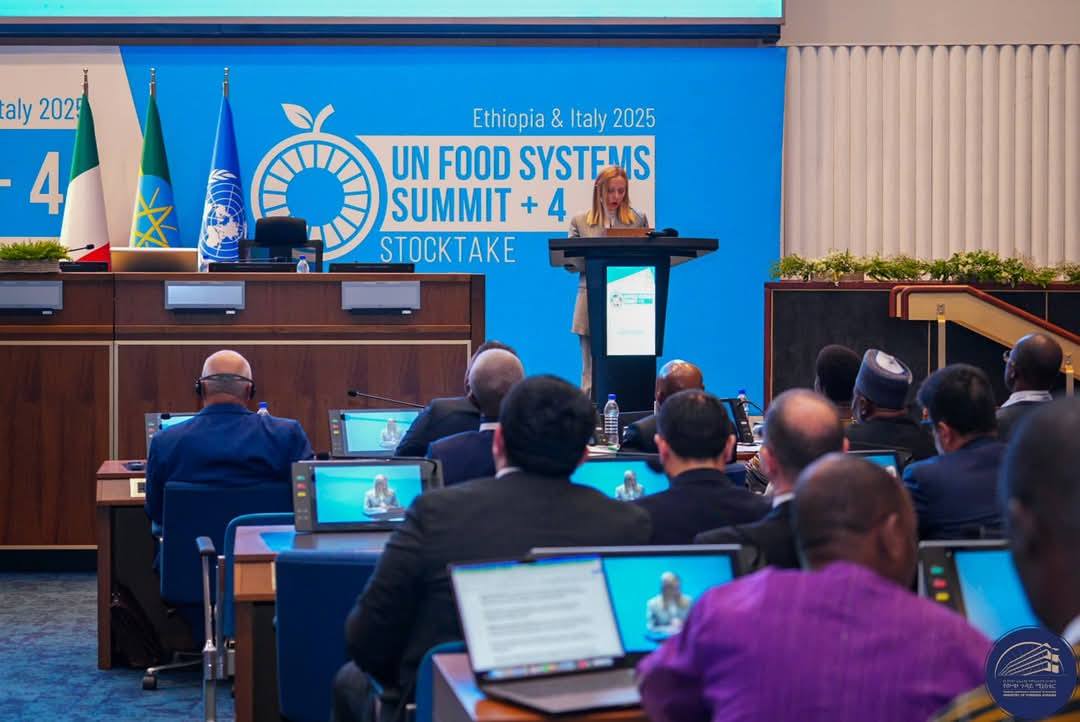
Italy's Commitment to Food Security and Sustainable Development
Italian Prime Minister Giorgia Meloni emphasized the critical importance of food security during her speech at the 2nd United Nations Food Systems Summit Stocktake (UNFSS+4) in Addis Ababa. This marks the first time the summit is being held on African soil, highlighting the continent's growing role in global discussions on food systems.
A Strategic Partnership with Ethiopia
Meloni explained that Italy chose to co-organize this event with the Ethiopian government due to their strong historical relationship and collaborative projects. She stressed the need for Africa to be a central player in international decision-making processes. "We believe it is essential to involve the African continent as a protagonist in the choices and actions of the international community," she said.
The Global Challenge of Food Insecurity
Despite significant progress over the past seven decades, global food insecurity still affects around 10% of the world's population. This issue is particularly acute in Africa, where one in five people faces hunger and lacks access to sufficient, safe, and nutritious food. Meloni pointed out that current global crises, including the Russia-Ukraine war, have worsened the situation by disrupting economic and trade flows, destabilizing energy markets, and causing inflation that disproportionately impacts vulnerable nations.
Food Security as a Political and Economic Issue
Meloni highlighted that food insecurity is not just a humanitarian crisis but also a political and economic challenge. "Food systems are an engine of growth and development, both for the most fragile nations and for those that are economically more solid," she stated. She emphasized the need for robust production and distribution chains to ensure that communities can prosper using their available resources.
Italy's Approach to Agricultural Development
Italy's strategy focuses on supporting sustainable agricultural development through initiatives like the Mattei Plan for Africa. This plan emphasizes the agri-food sector, leveraging Italy's unique combination of tradition and innovation. "We have made this heritage available to our African partners, and together with them we have built public-private partnerships that attract investments and guarantee concrete results," Meloni noted.
Successful Projects in Africa
Italy is already making an impact in several African countries. In Algeria, the country is reclaiming over 36,000 hectares of desert to produce up to 40-45,000 tons of additional cereals and legumes annually, creating 6,000 jobs and benefiting over 600,000 people. Similar efforts are underway in Senegal, Ghana, and Congo, with plans to expand to Côte d'Ivoire and Kenya.
In Tunisia, Italy is working to strengthen water management capabilities, a critical resource that will increasingly become a geopolitical and sovereignty issue. Meloni stressed that Italy's goal is not to create dependency but to support self-reliance through food sovereignty.
Promoting Local and Sustainable Agriculture
Food sovereignty, according to Meloni, involves the right of people to shape their own production models based on their cultural identity. "It means not going along with the standardization of food production—which lowers quality and concentrates wealth—but instead investing in promoting local, high-quality products," she said. Small and medium-sized farmers are crucial to maintaining agricultural and environmental systems, and they must be supported to live with dignity and have fair recognition for their work.
Conclusion
The Italian Prime Minister's vision underscores the importance of collaboration, innovation, and sustainability in addressing global food security challenges. By focusing on local solutions and fostering partnerships, Italy aims to contribute to a more equitable and resilient food system worldwide.


Posting Komentar